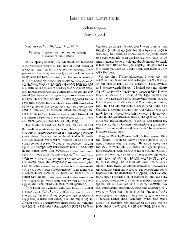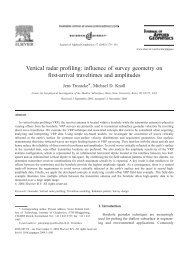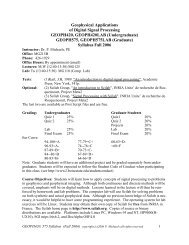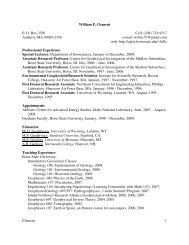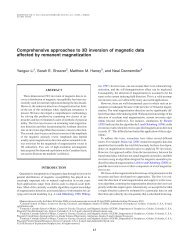Chapter 9 - Instructional Media: Chalkboards to Video - CGISS
Chapter 9 - Instructional Media: Chalkboards to Video - CGISS
Chapter 9 - Instructional Media: Chalkboards to Video - CGISS
You also want an ePaper? Increase the reach of your titles
YUMPU automatically turns print PDFs into web optimized ePapers that Google loves.
Philosophy 1 -- Grades are indica<strong>to</strong>rs of relative knowledge and<br />
skill; that is, a student’s performance can and should be compared<br />
<strong>to</strong> the performance of other students in that course. The standard<br />
<strong>to</strong> be used for the grade is the mean or average score of the class<br />
on a test, paper, or project. The grade distribution can be<br />
objectively set by determining the percentage of A’s, B’s, C’s, and<br />
D’s that will be awarded. Outliers (really high or really low) can be<br />
awarded grades as seems fit.<br />
Philosophy 2 -- Grades are based on preset expectations or<br />
criteria. In theory, every student in the course could get an A if<br />
each met the preset expectations. The grades are usually<br />
expressed as the percentage of success achieved (e.g., 90% and<br />
above is an A, 80-90% is a B, 70–80% is a C, 60 - 70 a D, and<br />
below 60 is an F). Pluses and minuses can be worked in<strong>to</strong> this<br />
range.<br />
Philosophy 3 -- Students come in<strong>to</strong> the course with an A, and it is<br />
theirs <strong>to</strong> lose through poor performance or absence, late papers,<br />
etc. With this philosophy the teacher takes away points, rather than<br />
adding them.<br />
Philosophy 4 -- Grades are subjective assessments of how a<br />
student is performing according <strong>to</strong> his or her potential. Students<br />
who plan <strong>to</strong> major in a subject should be graded harder than a<br />
student just taking a course out of general interest. Therefore, the<br />
standard set depends upon student variables and should not be<br />
set in s<strong>to</strong>ne.<br />
Instruc<strong>to</strong>r’s Personal Philosophy<br />
Florida State University does not have a suggested grading<br />
philosophy. Such decisions remain with the instruc<strong>to</strong>rs and their<br />
departments. However, the grading system employed ought <strong>to</strong> be<br />
defensible in terms of alignment with the course objectives, the<br />
teaching materials and methods, and departmental policies, if any.<br />
The grading system as well as the actual evaluation are closely<br />
tied <strong>to</strong> an instruc<strong>to</strong>r’s own personal philosophy regarding teaching.<br />
Consistent with this, it may be useful in advance, <strong>to</strong> consider<br />
fac<strong>to</strong>rs that will influence instruc<strong>to</strong>rs’ evaluation of students.<br />
• Some instruc<strong>to</strong>rs make use of the threat of unannounced<br />
quizzes <strong>to</strong> motivate students, while others do not.<br />
• Some instruc<strong>to</strong>rs weigh content more heavily than style. It has<br />
been suggested that lower (or higher) evaluations should be used<br />
as a <strong>to</strong>ol <strong>to</strong> motivate students.<br />
• Other instruc<strong>to</strong>rs may use tests diagnostically, administering<br />
them during the semester without grades and using them <strong>to</strong> plan<br />
future class activities. Extra credit options are sometimes offered<br />
when requested by students.<br />
Section: Student Assessment 189 <strong>Chapter</strong> 13: Grading



